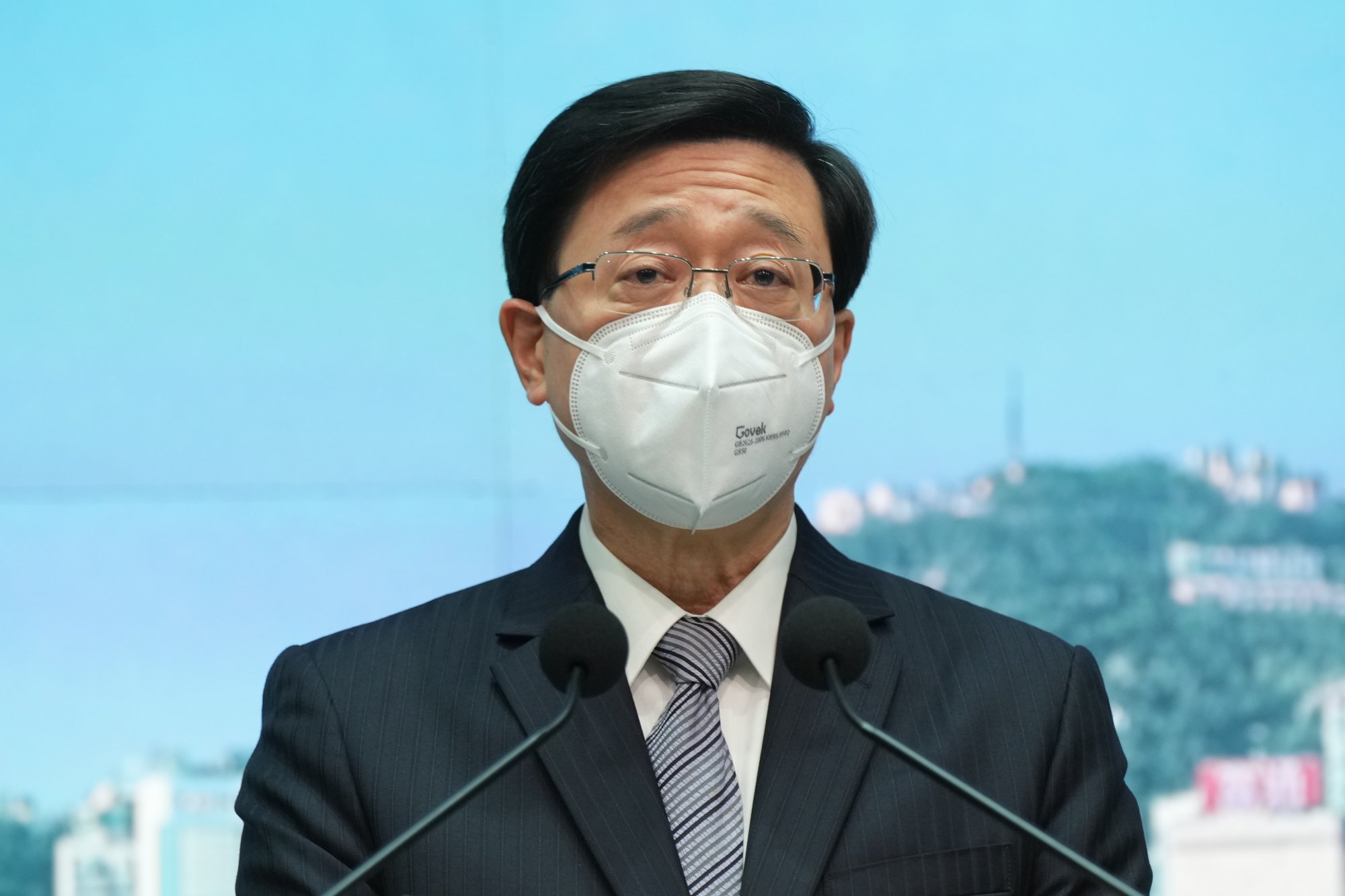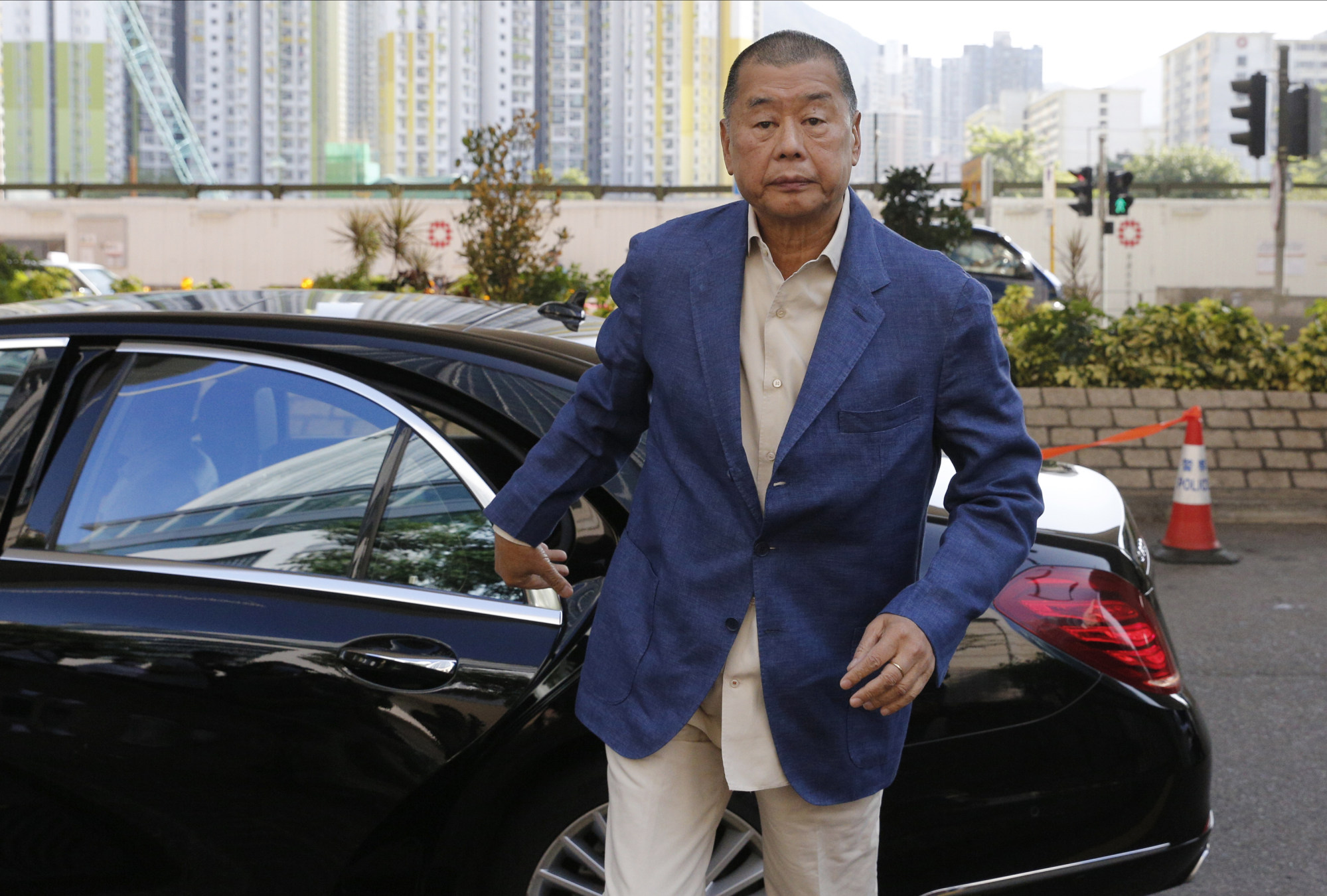
Hong Kong leader asks Beijing to interpret national security law after top court rules UK barrister can defend Jimmy Lai
- Chief judge of the High Court had earlier approved barrister Timothy Owen’s participation in light of ‘clear’ public interest
- Jimmy Lai, 74, is set to go on trial before panel of three High Court judges on Thursday
The State Council’s Hong Kong and Macau Affairs Office also weighed in on the ruling on Monday, saying the court decision had violated “the legislative spirit and legal logic” of the national security law. Beijing’s national security office in the city also backed Lee’s move.
Hours after the ruling by the Court of Final Appeal, Chief Executive John Lee Ka-chiu said the secretary for justice would seek an adjournment of Lai’s national security trial, which is set to begin on Thursday.

He said he would recommend the standing committee of the National People’s Congress interpret the national security law, based on its legislative intent and purpose, to decide whether solicitors or barristers who did not practise generally in Hong Kong should be allowed to argue cases concerning national interest.
“At present, there is no effective means to ensure that a counsel from overseas will not have a conflict of interest because of his nationality,” Lee said. “There is also no means to ensure that he has not been coerced, compromised or in any way controlled by foreign governments, associations or persons.”
Lee said foreign officials had openly interfered with professionals from the legal and commercial sectors in the past. While he did not name anyone, David Perry, KC, decided against leading the prosecution of nine activists over an illegal protest, after facing political pressure at home in 2021.
“Foreign countries and foreign forces are hostile to the implementation of the national security law in Hong Kong,” the city leader added. “As external interference continues, we need to be more alert to national security risks.”
It was impossible to ensure that overseas lawyers would comply with Article 63 of the national security law requiring them not to divulge state or commercial secrets, or personal details from the case, Lee argued.
“Based on these risks, will allowing overseas lawyers or barristers to take part in national security cases be in line with the legislative intent of the national security law?” he said.
Lee revealed he had received a request from Beijing on Sunday for a report documenting the implementation of the national security law over the past two years, adding he had submitted the suggestion for an interpretation in the summary.

Lee brushed aside concerns his move would damage the city’s legal reputation, saying defendants involved in national security crimes were still free to choose lawyers who were fully qualified in Hong Kong.
Asked whether Secretary for Justice Paul Lam Ting-kwok, who failed to win the case in the city’s courts, should be held accountable, Lee defended his contributions.
In the 25 years since Britain handed the city back to China, the standing committee has interpreted the city’s mini-constitution, the Basic Law, five times. The most recent interpretation came in 2016, after newly elected lawmakers Sixtus Baggio Leung Chung-hang and Yau Wai-ching used their oath-taking in the Legislative Council to criticise China. The apex body declared that new lawmakers who failed to take their oath sincerely or properly could be disqualified immediately.
The three Court of Final Appeal judges on Monday cited technical grounds in dismissing the secretary for justice’s last-ditch attempt to overturn the permission granted to London-based Timothy Owen, a king’s counsel, to join Lai’s defence team.
But Chief Justice Andrew Cheung Kui-nung, and justices Roberto Ribeiro and Joseph Fok, left open the overarching question of whether legal practitioners from abroad should in principle be excluded from national security cases.
The bench said justice minister Lam had failed to justify the “radically new points” he raised during his latest appeal, which had not been examined factually nor canvassed in argument by the lower courts.
Allowing such grounds to be advanced in the top court would go against a legal doctrine set down in 2002, and undermine the fairness of the proceedings, the judges said.
Hong Kong’s first national security trial: all you need to know
The court said the minister’s call for a general ban on overseas counsel taking up legal work involving matters of national security gave rise to a host of questions which had not been scrutinised.
“Why should there be effectively a blanket ban on ad hoc admissions of all overseas counsel in relation to all [national security law] cases without differentiation?” read the 14-page judgment, which did not identify its author.
The bench noted Senior Counsel Rimsky Yuen Kwok-keung, a former justice secretary representing Lam, had declined to indicate what “exceptional circumstances” would justify foreign lawyers’ involvement in national security cases.
The secretary’s contention that the participation of overseas counsel would “tend to defeat” the aim of countering interference by foreign or external forces also lacked evidence, the court said.
“The [secretary for justice] has fundamentally changed his case only at the stage of seeking leave to appeal to this court, raising undefined and unsubstantiated issues said to involve national security which were not mentioned or explored in the courts below. No appropriate basis has been made out for the grant of leave to appeal,” the judgment said.
Lai, 74, is set to stand trial before a panel of three High Court judges on Thursday on two counts of conspiracy to collude with foreign forces and one similar charge of collusion under the national security law. He also faces a sedition charge under colonial-era legislation. He has been remanded in custody since December 2020.
In October, Chief Judge of the High Court Jeremy Poon Shiu-chor approved Owen’s participation in light of “clear” public interest in the case, brushing aside objections by the Department of Justice, which appeared for the justice minister, and the Bar Association.
The department took the secretary’s grievance to the Court of Appeal and later the Court of Final Appeal, engaging three different sets of senior counsel in a rare, all-out effort to block an overseas lawyer from taking a case in the city.
Lai’s lawyers had complained their preparations for the trial were being impeded by the appeals.
Warning of ‘adjustments’ to Hong Kong security law if Lai lawyer ruling upheld
Earlier this month, three Court of Appeal judges upheld Poon’s ruling by highlighting the contribution overseas counsel could make in developing local jurisprudence, and the need to take public perception of fairness into account.
Tam Yiu-chung, the city’s sole delegate to the standing committee, said he supported Lee’s move and expected the decision would be handed down during the body’s regular meeting next month.
But Professor Johannes Chan Man-mun, former law dean of the University of Hong Kong, questioned the legal ground for such an interpretation.
“The interpretation is in practice making of a new rule rather than an interpretation of an existing law. There are far-reaching implications in any such interpretation which may severely compromise Hong Kong as an international city,” he warned.
Chan called the support by pro-Beijing figures for an interpretation before the court had handed down its ruling “disturbing”. The advocacy for a particular view would only undermine the rule of law and public perception of judicial independence, he said.
Senior Counsel Philip Dykes, former chairman of the Bar Association, said it was confusing for Lee to suggest foreign lawyers residing in Hong Kong could handle national security cases but not if they were residents overseas.
“What really matters is whether the advocate can be trusted and is not an unacceptable security risk, not the advocate’s nationality or where he is resident,” he said.


